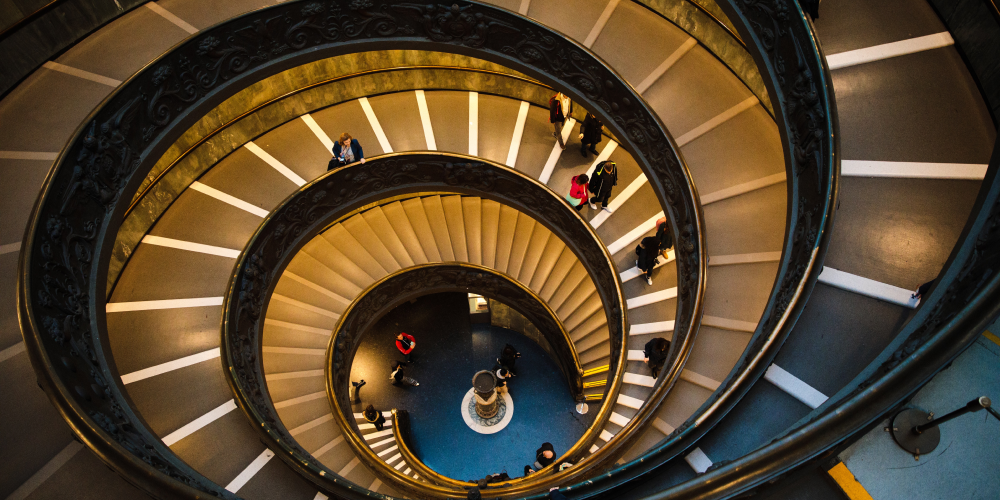
What Marketing Qualified Lead (MQL) means?
Leads are essential to the development of your business. You must know that is only by capturing leads that you can sell a service/product.
But turns out that ‘lead’ is a broad term, as there are levels of quality and specifications for each lead you deal with on a day-to-day basis.
In simple terms, a Marketing Qualified Lead, or MQL, is defined as a lead with a strong chance of conversion.
It’s a lead that has identified itself to your business, through your marketing output.
This includes the interaction, engagement and downloading of your content (that could be email sign-ups from the blog, ebooks, freemium add-on tools or case studies).
At this point, the leads are already in a more advanced stage of education – they know what problems they have and what they need to solve them.
But they are still looking for a company capable of meeting these needs.
So your marketing team starts to do a much more focused and intelligent job, while the sales team starts to receive better opportunities for the purchase.
What is the difference between MQL and SQL?
What differentiates an MQL from SQL is that the quality of the potential has been justified and confirmed by their pre-engagement.
A Marketing Qualified Lead does not necessarily guarantee that it is always a more relevant lead.
Your marketing efforts, to spread your business-wide as possible, will inevitably pick up non-totally specific targets on the way.
So the next step is to take the MQL to justify and qualify the potential of the lead with more specific measurement.
Research is required to break down your customer’s specific features in order to create your own qualifying lead algorithm or personalized ‘lead score’.
That is to say, the lead meets the requirements of the Ideal Customer Profile, pre-established by the marketing and sales team altogether.
SQL (Sales Qualified Leads), at this point, are the leads that are really inclined to make a purchase with your company.
They already know about their problems and they know how your business can help with that.
Once the MQL is qualified enough to be an SQL, the sales team will contact these leads and work on converting sales.
At this stage, you can find the best sales conversion options and let your sales team work on those users.
In general, it is a work of building relationships with these Leads.
Must-Know: Lead Score
A Lead Scoring is a technique used to identify those leads who are best prepared for the purchase, qualifying and prioritizing automatically or manually.
Generally, the ranking of Leads comes from two scores:
- Profile: that considers position, location, number of company employees, company segment, company revenue, among others.
- Interest: type of materials downloaded, nutrition flows that they participated in, received emails, how long they have been working with that company, etc.
Lead Scoring is an iterative process, so as you start to execute it, you will adjust the weights and always make small adjustments according to the results.
It requires you to create a universal definition so that there can be no objective opinions, only one agreed end result.
You can start by defining which criteria are most relevant to evaluate.
Choose 2-4 criteria that you observe in a Lead and that comes closest to help you identify whether it can be a good customer or not.
There is no magic formula for setting the Lead Scoring.
It is a decision that varies from business to business.
Lead Score is essentially important for companies that use Inbound Marketing for lead generation and nurturing as a strategy.
But analytical data insights can provide the pathway for this, along with gathering current client data.
How can you use that to improve your sales?
By knowing every step of your marketing and sales funnel,
also, every trigger that pushes the leads forward,
you can have control of your sales process.
When we think about sales, one of the main objectives of the leaders is to optimize this whole process, making converting leads to customers increasingly clear and practical.
However, you can only optimize sales conversion if you understand the concepts of MQL and SQL and how they impact your company’s sales area.
Ultimately, it’s better to have fewer leads of greater quality than to deal with a lot more leads with poorer quality.
And this will reflect in the value of productivity of your sales team as you don’t want them wasting their all-important time on leads which are never going to convert.
It is all about cleaning the process of the development of the lead, through the system – a quality control.
Anyway, you must understand that there is no pre-established ratio for how many MQLs will become SQLs and how many of those SQLs will convert to sales.
To do this, you need to observe the behavior of your leads and understand how to work with your company’s sales goals.
For example, if you need a number x of monthly sales, you will need to understand how your marketing and sales funnel’s conversion rate is.
So that you know the approximate number of leads needed at each stage.
Thus, your sales and marketing team are committed to each other and work together to achieve the best possible lead qualification.
How to generate more qualified leads?
You need to keep in mind that the MQL and SQL qualification process will always have something to improve.
And how can you do that?
First, always rely on data related to conversion rates from leads to customers, as this is the ultimate goal of qualification.
Also, note the path taken by leads that are converted through the sales funnel, and compare with the actions of those who give up halfway.
This can be helpful in finding elements of the strategy that should always be applied or set aside.
The fact is, the more you refine the quality of the content produced with the persona in mind – using useful tools to track and drive lead progress through the funnel – the better the qualification process will become.
You can always use Whoisvisiting Website Analysis Tool to know better about your leads – know-how by: How To Close A Sale With Whoisvisiting Software




